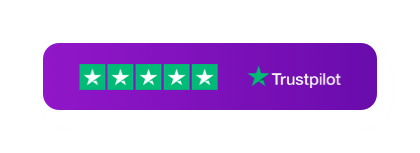
Vodafone Broadband
Full Fibre 100
100Mb / second
Average speed
Unlimited
Usage
£28.00 / month
£0 upfront fees

TalkTalk Broadband
Full Fibre 65
77Mb / second
Average speed
Unlimited
Usage
£31.00 / month
£15 upfront fees
Pricing may change during contract

Shell Energy Broadband
Full Fibre 900
944Mb / second
Average speed
Unlimited
Usage
£44.99 / month
£9.95 upfront fees

BT Broadband
Full Fibre 500
£50 BT Virtual Reward Card
500Mb / second
Average speed
Unlimited
Usage
£0 / month for 3 months
Then £49.99 / month
Pricing may change during contract

Hyperoptic Broadband
Fast 500Mbps Broadband only (Rolling contract)
522Mb / second
Average speed
Unlimited
Usage
£50.00 / month
£29 upfront fees
Compare Broadband
Am I a heavy user of the internet?
If you're online frequently, eating up a lot of data, you might be considered a heavy user. But how much internet use too much?
Let’s start by taking a closer look about what sort of internet activity uses a lot of data:
- Video streaming and downloading. Downloading videos can use a considerable amount of data, especially if you do so in HD (and, on a 4K TV, how else would you think of watching Planet Earth?). Standard definition will use less data. On the whole, streaming content uses less data than downloading but it does depend on the quality.
- Video-calling. The amount we video call has skyrocketed during the Coronavirus pandemic. Four hours of video-calling will use approximately a gigabyte of data; while this isn’t extreme, if you’re a work-from-home household, such as flat-sharers, then this can add up over the course of a month. And the last thing you want is your webcam freezing on your lovely face in a less-than-flattering gawp.
- File sharing. Whether sending files uses a lot of data or not depends on the content. Emails or word documents use very little; sending an entire archive of home videos will use a lot.
- Gaming. Playing online games or downloading them can require a lot of data capacity; if you fall into this category it is worth looking at broadband for gamers.
The good news is that almost all broadband packages these days come with unlimited usage as standard! But be aware that some providers may reduce your speed at certain times, and if you’re a heavy user this could be less than ideal.
Therefore, as a heavy user, you want fast internet speeds.
What type of broadband do I need if I am a heavy user?
Heavy users should look for broadband offers with enough speed to meet their needs, as well as unlimited data, of course.
Fibre optic broadband has the quickest average download and upload speeds. It’s now pretty ubiquitous, meaning it’s easier than ever to find cheap broadband deals with fast speeds. You’ll generally get more consistent connections too. If you’re a heavy user, when you run your broadband comparison, look for speeds of around 50 megabytes per second (Mbps).
Before you get too excited, though, it is worth just checking whether fibre covers your postcode – some more rural areas may still have to rely on ADSL broadband, or even satellite broadband (which typically has poorer speeds). You can use our postcode checker to see if you can get fibre optic broadband where you live. If the internet is only there to service your basic needs, like browsing, you can look for broadband offers with lower speeds.
Finally, consider downloading a free online program to check your current internet usage; this will help guide your broadband comparison and make sure you’re grabbing the deal best suited for you.
Do big households count as heavy users of broadband?
If there are multiple internet users under one household, then yes. Therefore, you should also consider the size of your household when you look for broadband.
Say you’re a family of five, and your home has two Smart TVs, five mobile phones and a couple of iPads or laptops. That’s a whole lot of devices hooked onto one connection, and although not all of them will be streaming content at the same time, a lot of data is still being consumed. It’s the same for student housing or shared-houses, where several people have multiple devices sharing one connection. Many student broadband packages offer fast speeds for this very reason.
If you’re a multi-user household, you’re considered to be heavy users. For that reason, when you compare internet deals you should look for unlimited data packages with high speeds. Because let’s face it, you don’t want to be fighting over the internet connection like it’s the noughties – we’ve got too many TV series to binge for that.
Last reviewed: 01 October 2022
Next review: 01 November 2022
